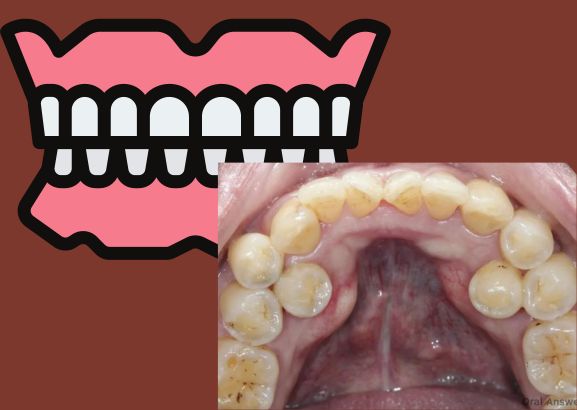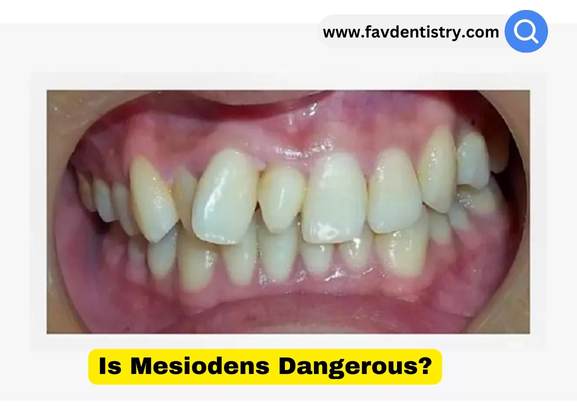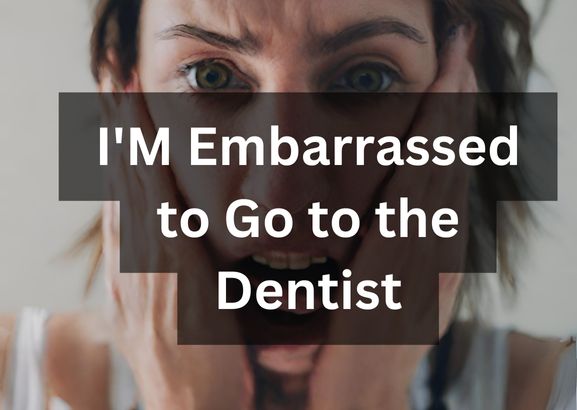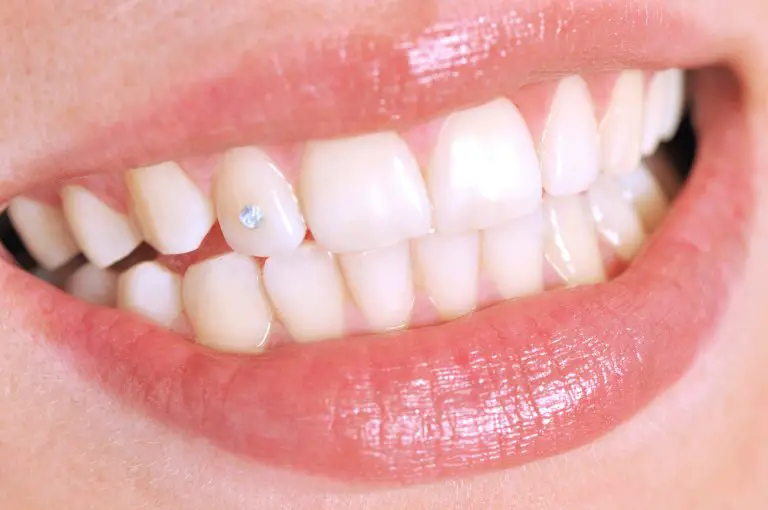Last Updated on 2 weeks by DR. ALBIN SIPES
Estrogen dominance can affect teeth health, leading to decay, gum disease, and bone loss. This hormonal imbalance can weaken the oral cavity, leading to oral health issues.
In addition, estrogen dominance may also result in dry mouth, which can further contribute to dental problems. Understanding the impact of estrogen dominance on teeth is crucial in maintaining proper oral hygiene and seeking appropriate treatment if necessary. In this article, we will delve into the relationship between estrogen dominance and teeth, exploring how hormonal imbalance can affect dental health and discussing preventive measures to protect your teeth.
So let’s dive in and learn more about this important topic.
Understanding Estrogen Dominance And Its Effects On Dental Health
Estrogen dominance is a common hormonal imbalance that can affect various aspects of a woman’s health. While most people are aware of its connection to reproductive and hormonal health, not many are familiar with its impact on dental health. Understanding the correlation between estrogen dominance and dental issues is crucial for maintaining optimal oral health.
In this section, we will explore the role of hormones in oral health, as well as the specific dental problems associated with estrogen dominance.
Estrogen Dominance And Its Correlation With Dental Issues
Estrogen dominance occurs when there is an imbalance between estrogen and progesterone levels, leading to an excess of estrogen in the body. This imbalance can have far-reaching effects, including on dental health. Here are the key points to understand about estrogen dominance and its correlation with dental issues:
- Hormonal fluctuations: Estrogen dominance can result in hormonal fluctuations in the body, which can impact the health and wellbeing of teeth and gums.
- Bone loss: Estrogen helps maintain bone density, including in the jawbone. When estrogen levels are imbalanced, it can lead to bone loss, weakening the supporting structures of the teeth and increasing the risk of tooth loss.
- Gum problems: Estrogen dominance can contribute to gum problems such as gum inflammation and gum diseases like gingivitis. This is because estrogen can influence blood circulation and the body’s immune response, affecting the health of the gums.
- Dry mouth: Hormonal imbalances can also lead to dry mouth, a condition where there is insufficient saliva production. Dry mouth creates an environment conducive to the growth of harmful bacteria, increasing the risk of tooth decay and other oral infections.
- Temporomandibular joint (tmj) disorder: Estrogen dominance can also contribute to tmj disorder, a condition that affects the jaw joint and surrounding muscles. Symptoms may include jaw pain, clicking or popping sounds, and difficulty in opening and closing the mouth.
Understanding the impact of estrogen dominance on dental health is essential for women experiencing hormonal imbalances. By addressing estrogen dominance and seeking appropriate dental care, individuals can minimize the risk of dental problems and maintain optimal oral health.
Dental Health Complications Caused By Estrogen Dominance
Estrogen dominance can have a significant impact on various aspects of women’s health, including their dental health. This condition occurs when there is an excess of estrogen relative to progesterone in the body, leading to hormonal imbalances. Hormonal fluctuations can affect oral tissues, leading to dental health complications.
In this section, we will explore the dental health complications caused by estrogen dominance, including an increased risk of gum disease, weakened tooth enamel, increased tooth sensitivity, and jaw bone loss.
Increased Risk Of Gum Disease
- Estrogen dominance can result in an increased risk of gum disease, also known as periodontal disease.
- The hormonal changes caused by estrogen dominance can lead to an overgrowth of harmful bacteria in the mouth, resulting in inflammation and infection of the gums.
- Symptoms of gum disease include red, swollen, and bleeding gums, along with bad breath and loose teeth.
Weakened Tooth Enamel And Increased Tooth Sensitivity
- Estrogen dominance can weaken tooth enamel, the protective outer layer of the teeth.
- This can make teeth more susceptible to decay, cavities, and dental erosion.
- Additionally, women with estrogen dominance may experience increased tooth sensitivity, leading to discomfort or pain when consuming hot or cold foods and beverages.
Jaw Bone Loss And Its Impact On Dental Health
- Estrogen dominance can contribute to the loss of jaw bone density, a condition known as osteoporosis.
- The decrease in estrogen levels can accelerate bone loss in the jaw, compromising the stability of teeth and potentially leading to tooth loss.
- The weakening of the jaw bone can also impact the fit and function of dental prosthetics such as dentures and dental implants.
Estrogen dominance can have detrimental effects on dental health. It is essential for women experiencing hormonal imbalances to be aware of these potential complications and work closely with their healthcare providers to maintain proper oral hygiene and seek appropriate dental treatment when necessary.
By addressing estrogen dominance and managing its effects, women can strive for optimal overall health, including their dental well-being.
Solutions And Recommendations For Maintaining Dental Health With Estrogen Dominance
Estrogen dominance is a condition that affects many women and can have various effects on their overall health. One area that is often overlooked when discussing estrogen dominance is dental health. The hormonal imbalance associated with estrogen dominance can have direct and indirect impacts on the health of our teeth and gums.
In this section, we will explore some solutions and recommendations for maintaining dental health with estrogen dominance.
Implementing Good Oral Hygiene Practices:
- Brush your teeth at least twice a day with a fluoride toothpaste to remove plaque and prevent tooth decay.
- Floss daily to remove plaque and food particles from between your teeth and along the gumline.
- Use an antibacterial mouthwash to kill bacteria and maintain fresh breath.
- Replace your toothbrush every three to four months or sooner if the bristles become frayed.
- Avoid tobacco products and limit your intake of sugary foods and beverages, as they can contribute to tooth decay.
Regular Dental Check-Ups And Cleanings:
- Visit your dentist at least twice a year for professional cleanings and comprehensive dental exams.
- Regular dental check-ups can help detect any potential dental issues early on and prevent them from becoming major problems.
- During these visits, your dentist may also perform oral cancer screenings and evaluate your overall dental health.
Hormonal Balance And Its Effects On Dental Health:
- Estrogen dominance can lead to increased gum sensitivity, making you more prone to gum disease and inflammation.
- Hormonal changes can also affect your saliva production, reducing its protective abilities, and contributing to dry mouth.
- Dry mouth can increase the risk of cavities as saliva helps neutralize acids and wash away food particles.
- Maintaining hormonal balance through lifestyle modifications, diet, and possibly hormone replacement therapy can help mitigate these effects on dental health.
Finding solutions and recommendations for maintaining dental health with estrogen dominance is crucial. By implementing good oral hygiene practices, scheduling regular dental check-ups and cleanings, and addressing hormonal imbalances, women with estrogen dominance can enhance their dental health and reduce the risks associated with the condition.
Remember to consult with your dentist and healthcare provider for personalized guidance on managing estrogen dominance and its effects on your dental health.
The Role Of Estrogen Replacement Therapy In Dental Health
Estrogen replacement therapy (ert) has been widely used to manage menopausal symptoms and mitigate the effects of estrogen decline in women’s bodies. While the primary focus of ert is hormonal balancing, its impact on dental health cannot be overlooked. Estrogen plays a crucial role in maintaining oral health and any imbalance can lead to various dental concerns.
In this section, we will explore the positive effects of estrogen replacement therapy on oral health, as well as the considerations and risks associated with this treatment.
Positive Effects Of Estrogen Replacement Therapy On Oral Health:
- Estrogen replacement therapy has been found to promote healthy gum tissues, reducing the risk of periodontal disease. It stimulates blood flow and collagen production, supporting the integrity of the gums.
- Ert can help alleviate dry mouth symptoms, a common issue among menopausal women. Dry mouth can lead to tooth decay, gum disease, and bad breath, but ert can restore moisture and salivary gland function.
- By increasing bone density, estrogen replacement therapy can combat osteoporosis, which also extends to the jawbone. A stronger jawbone provides a better foundation for dental implants and reduces the risk of tooth loss.
- Ert may contribute to reducing oral sensitivity and prevent the development of burning mouth syndrome, a condition characterized by a burning or tingling sensation in the mouth.
Considerations And Risks Associated With Estrogen Replacement Therapy:
- Prior to starting ert, it is important to consult with a healthcare professional to evaluate individual risk factors and determine the most suitable treatment plan.
- Estrogen replacement therapy may carry certain risks, including an increased likelihood of blood clots, especially in women with a history of clotting disorders or other risk factors.
- Ert should be used in the lowest effective dose and for the shortest duration necessary to manage menopausal symptoms. Prolonged use may elevate the risk of breast cancer and cardiovascular diseases.
- Other potential side effects of ert include breast tenderness, mood swings, and bloating. It is crucial to stay vigilant and report any concerns to your healthcare provider.
- Estrogen replacement therapy may interact with certain medications, so it is important to disclose all medicines and supplements you are taking to your healthcare professional.
Estrogen replacement therapy can have several positive effects on dental health by supporting oral tissues, combating dry mouth, promoting bone density, and reducing oral sensitivity. However, it is essential to carefully consider the associated risks and work closely with a healthcare professional when considering ert.
Lifestyle Changes To Improve Dental Health And Balance Estrogen Levels
Estrogen dominance not only affects our overall health but also has a direct impact on our dental health. Imbalance in estrogen levels can contribute to periodontal diseases, bone loss, and even tooth loss. However, by making certain lifestyle changes, we can improve both our dental health and balance our estrogen levels.
In this section, we will explore the key lifestyle changes that can help achieve this.
Balanced Diet And Its Impact On Estrogen Levels And Dental Health:
- Incorporate phytoestrogen-rich foods such as flaxseeds, soy, and legumes into your diet.
- Consume a variety of fruits and vegetables that are rich in antioxidants to support hormonal balance.
- Include foods high in calcium and vitamin d, such as dairy products, leafy greens, and fortified foods, for healthy teeth and bones.
- Limit the intake of processed foods, sugary snacks, and beverages to prevent tooth decay and hormone disruption.
Exercise And Its Role In Hormone Balance And Dental Health:
- Engage in regular physical activity to support overall hormone balance.
- Exercise helps reduce stress levels, which can contribute to estrogen dominance and dental issues.
- Weight-bearing exercises such as walking or strength training are particularly beneficial for maintaining strong bones and teeth.
- Aim for at least 30 minutes of moderate-intensity exercise most days of the week.
Stress Management Techniques For Hormone Balance And Improved Dental Health:
- Practice deep breathing exercises, meditation, or yoga to reduce stress levels.
- Engage in hobbies or activities that bring you joy and help you relax.
- Prioritize self-care and ensure you get enough quality sleep each night.
- Seek support from friends, family, or a therapist when needed to manage stress effectively.
By implementing these lifestyle changes, you can improve your dental health while also supporting hormone balance and reducing the risk of estrogen dominance. Remember, it’s essential to consult with a healthcare professional for personalized advice tailored to your specific needs.
Natural Remedies To Support Dental Health With Estrogen Dominance
Estrogen dominance can have a significant impact on various aspects of our health, including dental health. Hormonal imbalances can lead to issues such as gum inflammation, increased risk of gum disease, and weakened tooth enamel. However, there are natural remedies that can support dental health for those dealing with estrogen dominance.
Let’s explore some of these remedies and their benefits:
Herbs And Supplements For Hormonal Balance And Dental Health:
- Chasteberry: This herb can help regulate hormone levels and reduce symptoms of estrogen dominance that may affect dental health.
- Maca root: Known for its hormone-balancing properties, maca root can support overall hormonal health and contribute to better dental health.
- Probiotics: These beneficial bacteria can help maintain a healthy balance in the mouth, reducing the risk of dental issues associated with estrogen dominance.
- Vitamin d: Adequate vitamin d levels are essential for maintaining oral health, as it supports strong enamel and healthy teeth and gums.
Essential Oils And Their Benefits For Oral Health:
- Tea tree oil: With its antimicrobial properties, tea tree oil can combat oral bacteria and reduce inflammation, promoting better dental health.
- Clove oil: Known for its analgesic and antibacterial properties, clove oil can provide relief from toothaches and support overall oral health.
- Peppermint oil: This refreshing oil can freshen breath, reduce bacteria in the mouth, and soothe gum inflammation.
Natural Remedies For Common Dental Issues Associated With Estrogen Dominance:
- Oil pulling: By swishing coconut oil or sesame oil in your mouth for 10-20 minutes daily, you can remove toxins, reduce inflammation, and promote healthier gums.
- Saltwater rinses: Rinsing your mouth with warm saltwater can help alleviate gum inflammation and promote healing.
- Herbal mouthwashes: Certain herbal mouthwashes with ingredients like neem, myrrh, or calendula can maintain oral hygiene and reduce inflammation in the mouth.
By incorporating these natural remedies into your dental care routine, you can provide additional support for dental health while managing estrogen dominance. Remember to consult with a healthcare professional before starting any new supplements or remedies. Take a holistic approach to your overall health, and your dental health will benefit as well.
Frequently Asked Questions On Estrogen Dominance And Teeth
What Is Estrogen Dominance And How Does It Affect Teeth?
Estrogen dominance is a hormonal imbalance where estrogen levels are higher than progesterone levels. This imbalance can negatively impact oral health, leading to gum inflammation, dry mouth, and increased risk of cavities.
Can Estrogen Dominance Cause Gum Disease?
Yes, estrogen dominance can contribute to gum disease. Elevated estrogen levels can lead to increased blood flow to the gums, making them more sensitive and prone to inflammation. This can result in gum disease if proper oral hygiene is not maintained.
Does Estrogen Dominance Affect Tooth Enamel?
Estrogen dominance can weaken tooth enamel due to hormonal imbalances. This can make teeth more susceptible to decay and sensitivity. It is crucial to maintain good oral hygiene and visit your dentist regularly to prevent any further damage.
How Can I Prevent Estrogen Dominance From Affecting My Teeth?
To prevent estrogen dominance from impacting your teeth, it is important to maintain a healthy hormone balance. This can be achieved through a balanced diet, regular exercise, managing stress levels, and seeking medical advice if necessary. Additionally, practicing good oral hygiene is essential in protecting your teeth.
Are There Any Specific Dental Treatments For Estrogen Dominance-Related Oral Health Issues?
While there are no specific dental treatments for estrogen dominance-related oral health issues, regular dental check-ups and cleanings are crucial. Your dentist can monitor the condition of your teeth and gums, provide professional cleanings, and offer guidance on maintaining good oral health in the presence of estrogen dominance.
How Can I Manage Estrogen Dominance And Improve My Oral Health?
To manage estrogen dominance, it is recommended to consult with a healthcare professional who specializes in hormonal balance. They can provide guidance on lifestyle changes, dietary modifications, and hormonal therapies that may help regulate estrogen levels. Additionally, practicing good oral hygiene and visiting your dentist regularly can contribute to improving your oral health.
Conclusion
To sum it up, maintaining a healthy hormonal balance is crucial for maintaining optimal oral health. Estrogen dominance can have a significant impact on dental health, leading to increased risk of gum disease, tooth decay, and other oral health issues.
By addressing the root causes of estrogen dominance, such as reducing exposure to endocrine-disrupting chemicals and adopting a balanced lifestyle, we can mitigate its effects on our teeth. Additionally, incorporating good oral hygiene practices such as regular brushing, flossing, and dental check-ups, along with a nutrient-dense diet, can further support overall dental well-being.
Remember, our oral health reflects our overall health, so it’s essential to prioritize both in order to enjoy a healthy and vibrant smile. Take charge of your hormonal balance and care for your teeth, for a lifetime of good oral health lies in striking the right hormonal harmony.





